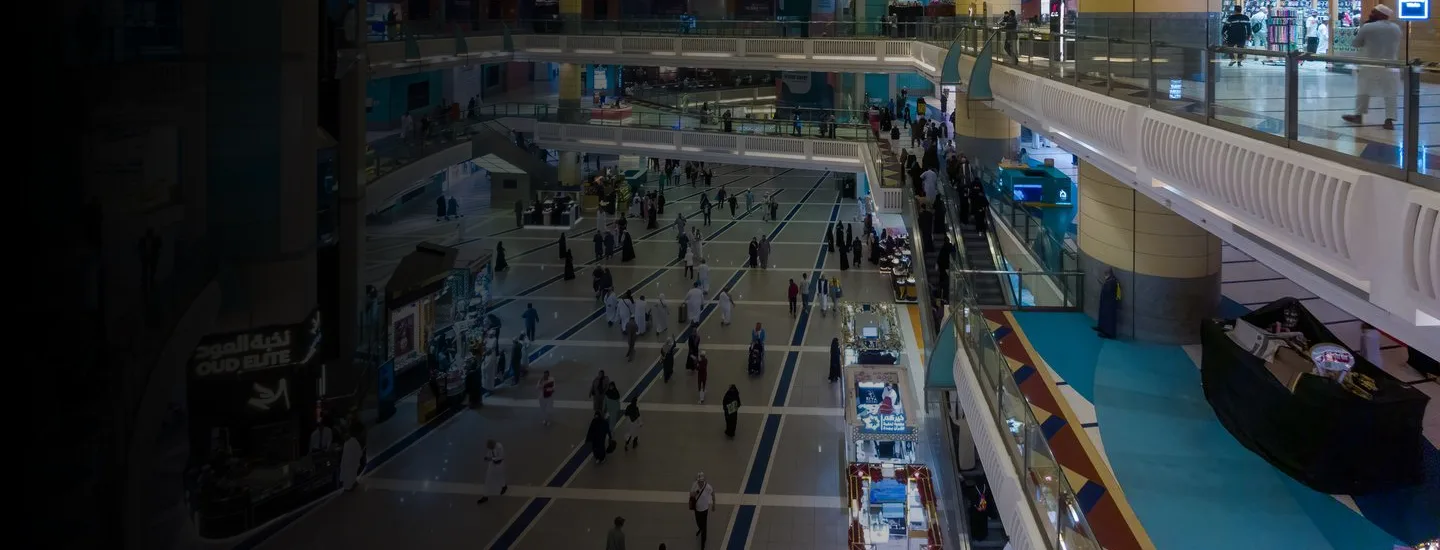With a staggering 40,000 attendees, 6,200 brands, 1,000 exhibitors, and 190 presenter sessions, the 2024 National Retail Federation (NRF) Big Show brought together industry leaders, experts, and enthusiasts from over 100 countries. Our team explored approximately 25 booths, attended around 15 speaking events, and took around 57,000 steps in navigating the bustling venue.
Crucial retailer trends and priorities for 2024+ that we heard throughout the conference echoed what we're hearing from our clients. It was interesting to engage with vendors who are addressing critical industry challenges such as customer experience, personalization, shrink, returns and re-commerce, and operating costs. Insightful was the theme of continuous disruption, moving from a singular event to a continuous reality. And, it was refreshing to learn about growth and expansion plans in product categories and geographies as retailers emerge from the ripple effects of COVID-19 and focus on the future.
Curious? Here are some key themes and innovations that we took from the Big Show.
Disruption is the new norm
The resounding theme of NRF 2024 was the acknowledgment that disruption has become the new norm. This sentiment echoed across various sessions, with discussions revolving around economic disruptions, changing customer behaviors, evolving competition dynamics, and the pervasive influence of artificial intelligence (AI), all of which closely mirror results from the 2024 AlixPartners Disruption Index.
Back to basics
Amidst the discussions on technological advancements, many speakers emphasized the importance of placing the consumer at the center of everything. Notable brands like DICK'S Sporting Goods (CEO Ed Stack) and Ulta Beauty (CEO Dave Kimbell) underscored the significance of returning to basics and understanding consumers' fundamental needs and expectations.
AI, AI, and more AI
AI took the spotlight, with a pervasive presence and discussions surrounding its applications. While there wasn't a single "killer" use case, the consensus was that AI is being seamlessly woven into both internally and externally facing business capabilities.
Internally within retailers, AI is being applied to day-to-day functions, such as forecasting, pricing and promotions and inventory optimization, focusing on evolving efficiencies and enabling associates to address higher-order opportunities. Externally, it is enabling an improved consumer experience, and engagement through personalization, live shopping, and augmenting associate knowledge to provide better customer service. These are real, usable use cases versus “revolutionary” ones, but cumulatively have the potential for a transformational effect.
Organized crime concerns
Saks (CEO Marc Metrick) underlined the "huge" issue of organized crime affecting physical stores and e-commerce channels. Numerous technologies and services are addressing fraud and crime at multiple levels, from shopper/returner behavior to advanced loss prevention capabilities.
Retailers are also grappling with cybersecurity challenges while emphasizing the importance of doing the right thing for their customers who fall victim to hacking incidents.
Social responsibility
Levi's (incoming CEO Michelle Gass) highlighted their "profits through principles" culture, and Under Armour (CEO Stephanie Linnartz) discussed "shifts to new sustainable product fibers", with other retailers similarly echoing shared commitment to sustainability and the evolution of diversity, equity, and inclusion (DE&I) initiatives. Doing the right thing for employees, customers, and the planet emerged as a central theme, reflecting a broader shift toward socially responsible retail practices.
General market optimism
Optimism and a focus on growth permeated the discussions within industry speakers' sessions. The overarching sentiment was one of positivity, with a shared commitment to navigating challenges and capitalizing on growth opportunities, including new channel enablement, geographic expansion, product expansion in traditional mono-brands, and greater direct-to-consumer (DTC) capabilities.
Innovation addressing market trends
The Innovation Zone and Re:Tech areas highlighted emerging solutions available to address key market challenges. Noteworthy solutions included Buywith's Shoppable Livestream platform, integrating influencer marketplaces at Walmart and other retailers. OfferFit showcased the potential of self-learning AI-driven A/B testing, while RetailInsight and Netail's ProfitMind focused on AI product and price prescriptive analytics to help retailers sell more and waste less. Advertima presented in-store RetailMedia screens that can personalize content by capturing customer non-PII data via a camera. Typeface demonstrated AI product image content generation that adheres to brand guidelines and saves effort and costs in creative production. Zero10 offers a clothing augmentation shop front display, Treet provides a re-commerce solution that covers customer trade-ins, C2C, and an off-price storefront for brands, and Yofi's shrink solution identifies e-commerce "bad consumers" driving unique and automated customer returns policies. Similarly, the Appriss solution tackles returns fraud also in stores, and Quorso’s "Co-Pilot" turns generic reports into personalized, top-priority actions and intelligent workflows.
In summary
From the prevalence of disruptive forces to the emphasis on customer-centricity and the integration of AI, NRF captured the essence of an industry in constant evolution. As retailers strive to do the right thing, embrace socially responsible principles and drive positive change, NRF served as a nexus for collaboration, learning, and envisioning the future of retail.
Let us know: if you attended NRF this year, what were your big takeaways, and did they inform your plans? If so, how so?

